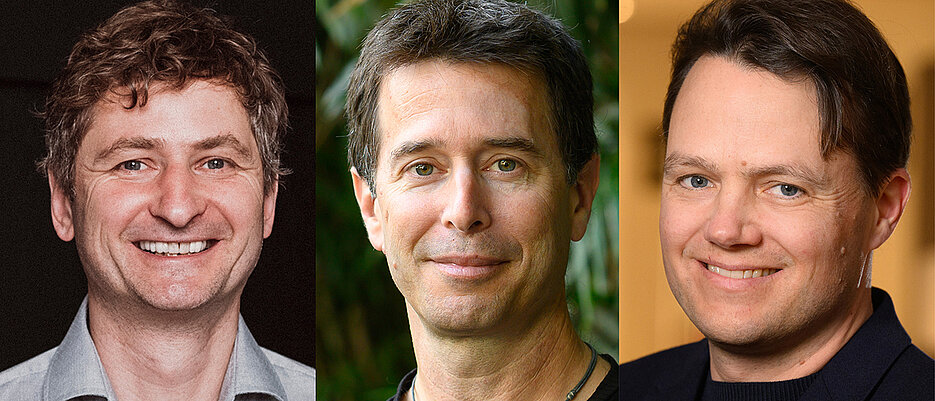The Israeli researcher Rotem Sorek has received the Max Planck-Humboldt Research Award worth 1.5 million euros. The money will go toward a joint project with the Helmholtz Institute Würzburg and the LMU.

For his research into bacterial defense against viruses, Rotem Sorek has received the Max Planck-Humboldt Research Award 2023, which is presented together with 1.5 million euros in prize money. The award will fund a research project that the scientist from the Weizmann Institute of Science in Israel will embark on in collaboration with Jörg Vogel from the Helmholtz Institute Würzburg and Veit Hornung from Ludwig-Maximilians-Universität (LMU) in Munich. Together, the scientists want to investigate key mechanisms of the bacterial and human immune systems. Würzburg and Munich will each benefit from half of the money.
Defense against pathogens or dangerous foreign substances is essential for all life forms. In their respective environments they are constantly subjected to various influences, which can threaten their survival. More complex life forms, such as humans, have consequently developed a comprehensive immune system out of a network of defense mechanisms during the course of evolution. Bacteria, too, have a type of immune system that they use to defend themselves against viruses, also known as phages.
When these phages infect bacteria, they introduce their genetic material into the microbes. The mass reproduction of the virus ultimately leads to the death of the bacterial cells. How bacteria defend against phages is not only relevant to basic research; this knowledge has a wide variety of applications. For example, the CRISPR-Cas system, which bacteria use to defend themselves against invading viruses, is being further developed and utilised as a type of "genetic scissors" in the field of genetic engineering.
How bacteria defend against viruses
Rotem Sorek has discovered that the defense mechanisms in bacteria extend far beyond the CRISPR-Cas system. Inside the genetic material of thousands of different bacteria, he systematically looked for anti-phage defense systems and, in so doing, discovered a variety of defense mechanisms that function like an immune system for the protection of the bacteria. Many of these form the origin of defense functions present in the human immune system.
For these research achievements, Rotem Sorek is now being presented with the Max Planck-Humboldt Research Award 2023. It is presented along with 1.5 million euros in prize money and enables exceptional scientists from abroad to undertake a research project in Germany. Sorek will research key mechanisms of bacterial and human immune systems. To this end, he will partner with Jörg Vogel from the Helmholtz Institute for RNA-based Infection Research (HIRI) at the University of Würzburg and Veit Hornung from the Ludwig-Maximilians-Universität (LMU) of Munich. Together, the researchers intend to identify hitherto unknown antiviral defense strategies of the human immune system with the help of bacterial anti-phage defense mechanisms, which could be used in new therapies for treating infections. Würzburg and Munich will each benefit from half of the prize money. It can be used to fund staff and consumables for the joint research.
HIRI Director Jörg Vogel: "The Max Planck Humboldt Research Award is intended to promote scientific breakthroughs, and I am extremely pleased to be part of it with the Helmholtz Institute Würzburg. The fact that we have been selected as a partner institution demonstrates that our institute is amongst the world's leaders. Our research at the interface of RNA and infection biology will truly benefit, and Würzburg as a center of science and research will also experience new impulses for its international networking and visibility."
About the award
The Max Planck Society and the Alexander von Humboldt Foundation present the Max Planck-Humboldt Research Award, along with 1.5 million euros in prize money, to a researcher from abroad. 80,000 euros in personal prize money is also awarded.
The focus here is on personalities whose work is characterised by outstanding potential for the future. The prize is intended to attract particularly innovative scientists working abroad to spend a fixed period of time at a German higher education institution or research facility. The Federal Ministry of Education and Research (BMBF) provides the funding for the award.






